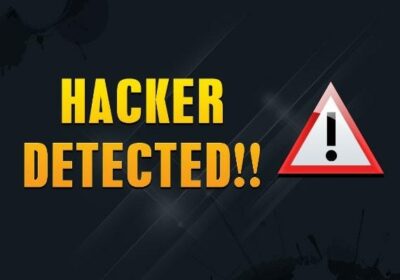When we think of hiring a hacker, images of shady figures hunched over keyboards, infiltrating top-secret systems might come to mind. But, as with many things in life, there’s more to the story than what’s presented in movies and media. The realm of hacking is vast and nuanced, and it’s crucial to differentiate between ethical hackers and their malicious counterparts. As businesses increasingly turn to ethical hackers to bolster their security systems, it’s high time we debunked some of the myths and misconceptions about hiring a hacker.
Myth #1: All hackers are criminals
Probably the most pervasive myth is that all hackers are inherently malicious. However, hacking, in essence, is about understanding and manipulating computer systems. It’s the intent behind the action that determines its ethical (or unethical) nature.
Fact: There are several categories of hackers:
- White Hat Hackers: These are ethical hackers hired to find vulnerabilities in a system and help patch them. They operate legally and with permission.
- Black Hat Hackers: The “bad guys” who engage in illegal activities for personal gain or malicious intent.
- Grey Hat Hackers: These hackers operate in the grey area, often breaking into systems without permission but with good intentions, like notifying the organization of a vulnerability.
Myth #2: Small businesses don’t need to hire hackers
Many small business owners believe they aren’t targets due to their size or the nature of their business.
Fact: Cybercriminals often target small businesses because they’re perceived as having weaker security. Hiring an ethical hacker can identify vulnerabilities before a malicious actor does.
Myth #3: Ethical hackers will teach internal teams to hack
The assumption here is that ethical hackers will inadvertently teach internal IT teams illegal hacking techniques.
Fact: Ethical hackers aim to educate teams about potential vulnerabilities and best security practices, not illegal hacking techniques.
Myth #4: Once you hire a hacker, your system is invincible
Some believe that hiring a hacker once will make their systems impregnable.
Fact: Cybersecurity is an ongoing process. New vulnerabilities can emerge, and technologies evolve. Regular checks and updates are vital.
Myth #5: Ethical hacking is a one-time process
Linked to the previous myth, many think of ethical hacking as a one-off task.
Fact: The digital landscape changes continuously. Regular penetration tests and vulnerability assessments are essential for maintaining robust security.
Myth #6: Ethical hackers use the same methods as malicious hackers
There’s a belief that ethical hackers and black hat hackers use the same techniques, making them virtually the same.
Fact: While the foundational knowledge might be similar, ethical hackers always operate with permission and within legal and ethical boundaries.
Myth #7: Ethical hackers are too expensive for what they offer
Many businesses, especially startups, often avoid hiring ethical hackers due to perceived costs.
Fact: The cost of hiring an ethical hacker pales in comparison to potential financial, reputational, and operational damages from a cyberattack.
Myth #8: It’s better to wait for a breach to happen than to hire a hacker
Some operate on the “it won’t happen to me” principle.
Fact: Prevention is always better than cure. Waiting for a breach can result in irreversible damages.
Myth #9: Ethical hackers can’t be trusted
Given the duality of the hacking world, trust becomes a contentious issue.
Fact: Reputable ethical hackers have clear contracts, operate transparently, and often have certifications like the Certified Ethical Hacker (CEH) qualification. Proper vetting and hiring from known organizations can mitigate risks.
Myth #10: Automated security tools are as good as ethical hackers
With the rise of automated tools, some believe they can replace human hackers.
Fact: While tools play a crucial role, they can’t replace the creativity, intuition, and adaptability of a human hacker. A combination of both provides the best defense.
Conclusion
The world of cybersecurity is intricate, and hackers play an increasingly vital role in fortifying digital fortresses. As reliance on digital platforms grows, it becomes paramount to understand and value the role of ethical hackers. By debunking myths and misconceptions, we take a step towards a more secure digital future. Remember, in the battle against cyber threats, knowledge is your best defense.




Ethical hackers are white hat hackers who use their skills to find and fix security vulnerabilities before malicious actors can exploit them. They play a vital role in protecting our digital infrastructure.
Small businesses are often targeted by cybercriminals because they are perceived as having weaker security. Hiring an ethical hacker can help small businesses identify and fix vulnerabilities before they are exploited.
Ethical hackers teach internal IT teams about potential vulnerabilities and best security practices. They do not teach illegal hacking techniques.
Hiring an ethical hacker once does not make your system invincible. Cybersecurity is an ongoing process, and new vulnerabilities can emerge all the time. Regular checks and updates are essential.
Ethical hacking is not a one-time process. Regular penetration tests and vulnerability assessments are essential for maintaining robust security in the ever-changing digital landscape.
Ethical hackers use a variety of tools and techniques to find vulnerabilities in systems, including network scanning, penetration testing, and social engineering.
Ethical hackers also play a role in developing new security tools and techniques.
The cost of hiring an ethical hacker varies depending on the size and complexity of the organization’s network, as well as the scope of the ethical hacking engagement.
However, the cost of hiring an ethical hacker is typically much lower than the cost of recovering from a cyberattack.
Ethical hackers can also help organizations to develop and implement security policies and procedures.
This helps organizations to reduce the risk of cyberattacks and to better respond to security incidents when they do occur.
Ethical hackers can also help individuals to improve their personal security.
This can include providing advice on how to choose strong passwords, how to protect against phishing attacks, and how to keep devices and software up to date.
If you are interested in becoming an ethical hacker, there are a number of certifications that you can obtain.
One of the most popular certifications is the Certified Ethical Hacker (CEH) certification.
There are also a number of other certifications available, such as the Offensive Security Certified Professional (OSCP) certification and the Offensive Security Certified Expert (OSCE) certification.